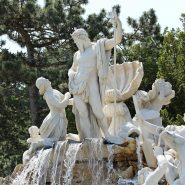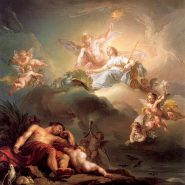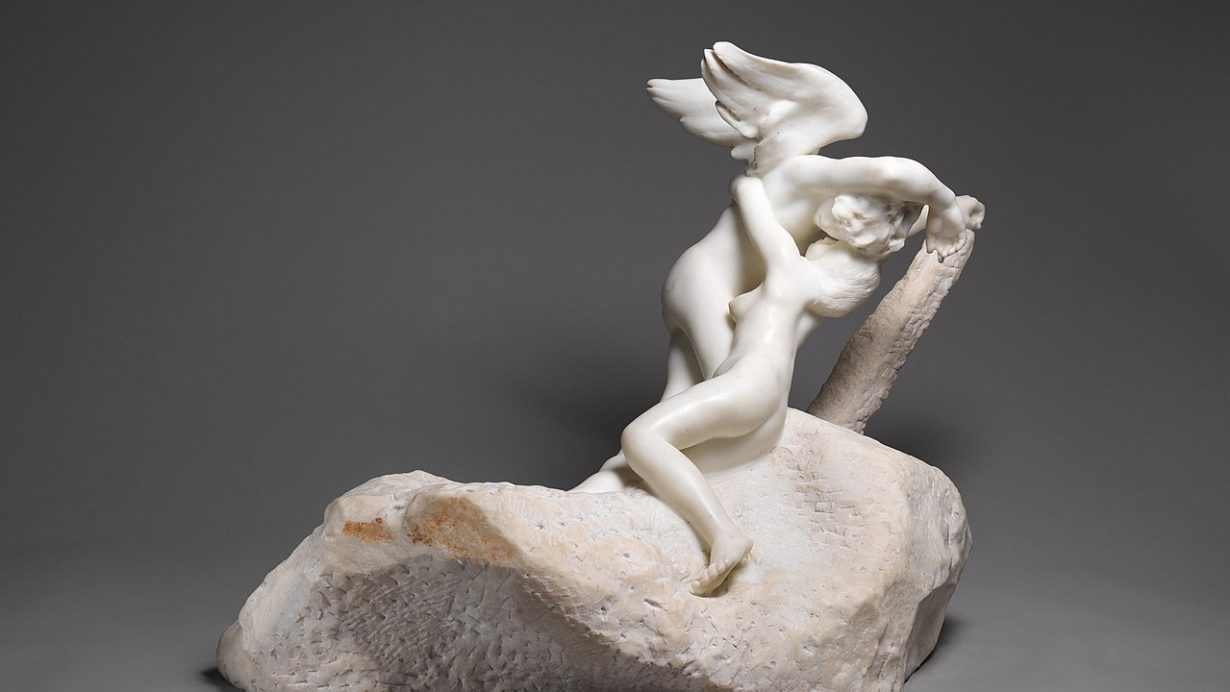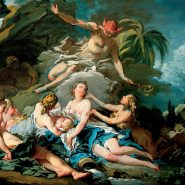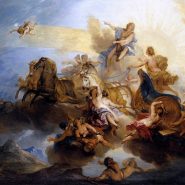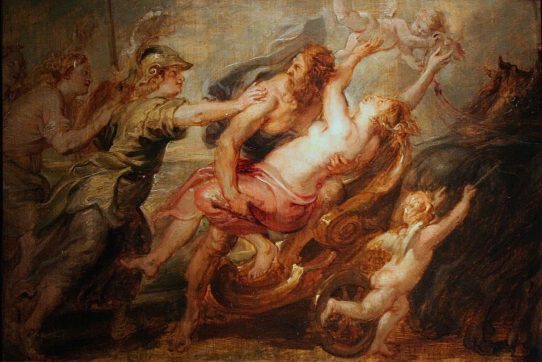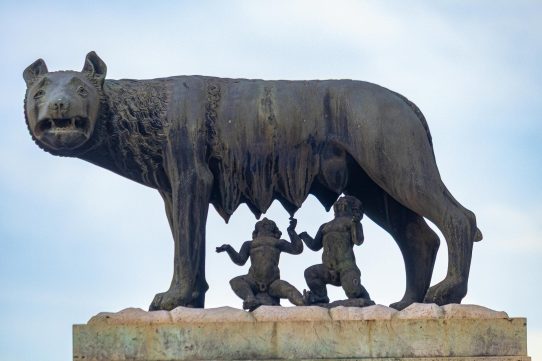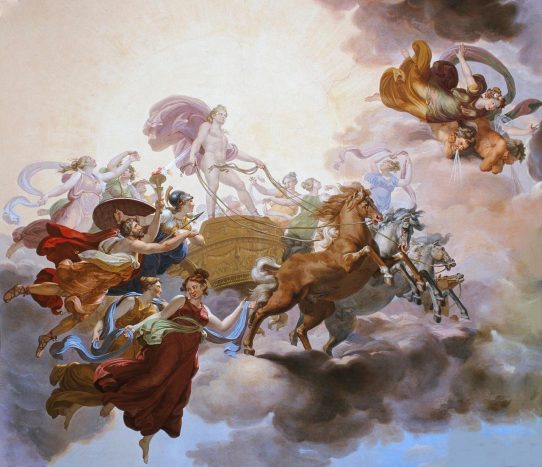Overview
The myth of Cupid and Psyche is one of the most exquisite tales in Roman mythology — a story that blends love, jealousy, trial, and redemption into a moral about the education of the soul. Told most fully by Apuleius in his *Metamorphoses*, it reflects how human longing, curiosity, and faith converge in the pursuit of divine understanding. Through Psyche’s journey, the myth transforms romantic desire into a spiritual awakening, showing how the soul matures through trust and endurance.
Characters and Setting
Psyche, a mortal princess, was said to be so beautiful that even Venus, goddess of love, felt her divine radiance challenged. While her two elder sisters found noble husbands, Psyche remained unwed — not for lack of suitors, but because men worshipped her from afar, treating her as a living goddess rather than a bride. Venus, whose temples grew empty as people turned their adoration toward the mortal girl, resolved to punish her arrogance and restore reverence for her own divinity.
Venus’s son, Cupid, the winged god of love, became the instrument of this vengeance. Yet when he beheld Psyche’s beauty, he was wounded by his own arrow and fell deeply in love. The stage was set for a divine drama that would test both love and the soul that sought to understand it.
The Oracle and the Mountain
Fearing the wrath of the gods, Psyche’s father sought guidance from the oracle of Apollo. The prophecy was cruel: Psyche would never marry a mortal man. Instead, she was destined to become the bride of a monstrous being, feared by gods and mortals alike, who would come to claim her on a lonely mountain peak. Her family wept, but Psyche accepted her fate with quiet courage. Dressed for a funeral rather than a wedding, she was left upon the summit, awaiting her unseen husband.
As the winds rose, a gentle breath lifted her from the rock. The west wind Zephyrus bore her safely through the air, setting her down before a palace of gold and marble. There, invisible servants greeted her and prepared a feast. Music without players filled the air. Each night, her mysterious husband came to her — unseen but tender — warning her never to look upon his face. His voice was gentle, and his love unthreatening. She soon forgot her fear, though curiosity quietly grew within her heart.
The Seeds of Doubt
Loneliness stirred Psyche’s longing for her family. She begged her husband to allow her sisters to visit. When they arrived, jealousy whispered among them. Envious of her splendor and the unseen lover who had made her queen of a palace, they poisoned her peace with suspicion. “If he hides his face,” they warned, “it is because he is a monster.” Fear and curiosity overcame trust. That night, Psyche lit a lamp to see her lover’s face.
The flame revealed Cupid himself, radiant and sleeping. His bow and arrows rested beside him, and in her awe she leaned closer. A drop of hot oil from the lamp fell upon his shoulder. Startled and wounded, Cupid awoke. His eyes met hers — sorrowful, betrayed — and he fled through the window into the night. The palace dissolved, the voices vanished, and Psyche was left alone upon a barren hillside, calling his name in vain.
The Wandering and the Trials
Psyche wandered the earth in grief, searching for her lost love. At last she came to a temple of Ceres, goddess of harvest, and prayed for mercy. Ceres, pitying her, could not protect her from Venus’s anger but advised her to surrender and seek forgiveness directly. When Psyche knelt before Venus, the goddess received her coldly and set her to impossible labors — each a test of humility, perseverance, and divine favor.
The first task was to sort a mountain of mixed seeds — barley, millet, lentils, and poppy — before nightfall. Psyche despaired, but a colony of ants, moved by divine sympathy, came to her aid, dividing the grains by kind until the work was done. The next trial demanded that she gather golden wool from the fierce rams of the sun. Approaching the riverbank where they grazed, Psyche listened to a whisper from the reeds, which told her to wait until the rams rested and to collect the fleece caught on the branches. By obedience she succeeded where boldness would have brought ruin.
Venus then commanded her to fetch icy water from a spring guarded by dragons on the world’s edge. As Psyche stood trembling, Jupiter’s eagle swooped down, seized the crystal flask, and filled it safely. Each labor revealed how divine grace aids mortal courage. Yet Venus remained unmoved and imposed a final, perilous command — to descend into the underworld and bring back a casket containing a fragment of Proserpina’s beauty.
The Journey to the Underworld
Guided by a talking tower that took pity on her, Psyche learned the rituals of descent: to carry two coins for the ferryman Charon, two honeyed cakes for the three-headed Cerberus, and to refuse all offers of help from the dead. She followed every instruction with care. Proserpina received her kindly, granting her the small box of beauty. With equal discipline, Psyche retraced her steps to the living world — until temptation struck once more.
Weary and thinking herself unworthy to face Cupid’s divine beauty, Psyche opened the casket, hoping to take a little of the charm for herself. But instead of beauty, a cloud of infernal sleep poured out and struck her motionless upon the road. Her final weakness became the last proof of her humanity — a fall that love alone could redeem.
The Divine Reunion
Cupid, now healed of his wound, flew from his mother’s house and found Psyche lying still. He wiped the sleep from her eyes and returned it to the box, restoring her to life. Then he soared to Jupiter’s court to plead their cause. The gods assembled. Even Venus, though sullen, was summoned. Jupiter, smiling upon the pair, declared that love and the soul must not be forever divided. He offered Psyche a cup of ambrosia, granting her immortality and making her the lawful wife of Cupid. The gods rejoiced, and Venus herself softened when she saw the glory of her son’s happiness.
Symbolism and Interpretation
The tale of Cupid and Psyche is more than a romance. In Latin, psyche means “soul.” The myth portrays the soul’s education through love and suffering. The palace represents the harmony of trust; the lamp and oil, curiosity and impatience; the trials, the virtues of patience, obedience, and humility. Psyche’s descent to the underworld echoes the soul’s journey through despair and its return to light through divine mercy. The union of Cupid and Psyche thus becomes the allegory of perfected love — when desire and wisdom are joined, and mortal experience ascends toward immortality.
Cultural Legacy
From antiquity through the Renaissance, the story inspired painters, poets, and philosophers. In Roman art, Psyche is shown with butterfly wings, symbolizing the soul’s transformation. Apuleius’s version influenced later allegories of the Christian soul’s trials and redemption. Artists such as Raphael, Canova, and Burne-Jones reimagined the lovers in marble and canvas, while modern interpreters continue to see in the myth a parable of emotional maturity — the passage from innocence and fear to understanding and devotion.
In every retelling, Psyche’s courage and Cupid’s forgiveness affirm that love, purified by hardship, leads the human soul to divine union. The story endures because it speaks not only of gods and mortals, but of every heart that learns through trial what trust truly means.
Gods involved: Cupid, Venus, Jupiter, Proserpina, Ceres, Mercury, Zephyrus.
Based on classical sources in the public domain, including Ovid’s Metamorphoses and translations available via Project Gutenberg and Wikisource.

